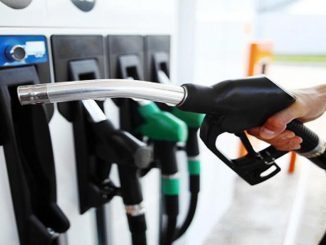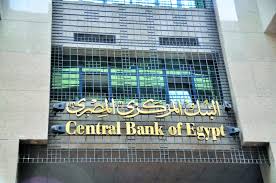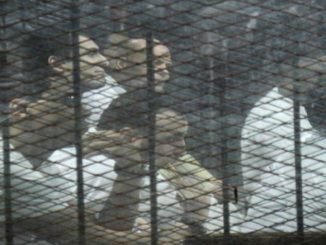
A video of an enraged tuk-tuk driver unloading on the state of Egypt’s flagging economy went viral on Thursday, underlining growing popular discontent in the country over shortages of food staples and broader business malaise, according to US News.
Filmed in the crowded lanes of a working class Cairo neighborhood, the video shows the driver, surrounded by crowds, slamming the government for spending money on pomp at recent state ceremonies while the poor suffer.
“You watch Egypt on television and it’s like Vienna, you go out on the street and it’s like Somalia’s cousin,” he says in the clip, originally aired on Wednesday night on the pro-government Al Hayat television channel.
The video had gained some 2.2 million views and 62,000 likes on one Facebook page, with thousands more added each hour to the criticism-heavy footage, rare to be broadcast on television, by Thursday evening.
In a sign of how sensitive the matter is, the network quickly pulled the video from its own media sites.” Egypt has a long history of suppressing news that can be seen as damaging to its image, a trend that has intensified under the rule of Abdel-Fattah al-Sisi,” as reported by US news.
Al-Sisi, a former general and army chief, led a military coup in 2013 against Egypt’s first democratically elected President Mohamed Morsi,” stamping out opposition and dissent with thousands jailed — but also promising stability and a better economy for all.”
However, al-Sisi has urged belt-tightening in this country of over 90 million people in the recent months ahead of austerity measures, a currency devaluation and price hikes needed to secure a crucial bailout by the International Monetary Fund.
Al-Sisi government aims to secure IMF loan as economic conditions in Egypt worsened. Under al-Sisi rule,tourism and foreign investments declined as a result of political instability and security threats.
Shortage in foreign currency increased due to the declined in hard currency revenues. As a result, dollars exchange rate has increased compared to the Egyptian national currency that sharply fell in the parallel market.
In this context, $12 billion bailout loan aimed at supporting the government’s reform package has yet to be finalized, but approval by the IMF’s board could come as early as next week if the conditions are met, hopefully paving the way for sustainable economic growth that generates jobs for the country’s surging population.
US news said, “But for the unnamed driver of the motorized rickshaw, recent shortages of staples such as rice, sugar and oil — some due to a shortage of dollars in the country and the plunging black market value of the Egyptian pound — could be traced to the policies of Egypt’s uncontested leader.”
The Tuk Tuk driver summarizes Egypt’s reality after the military coup
“Before the president was elected we had enough sugar, and rice,” he said. “What happened?”
We watch the television, we find Egypt is like Vienna. We go to the streets, we find out it’s like Somalia’s cousin”
And so began his impassioned assessment of Egypt’s woeful state that would take the country by storm.
“The people at the top who are going to celebrate, excuse me, but they are going to celebrate and bringing 38 delegations, spending on them 25m Egyptian pounds, and the poor citizen cannot find a kilo of rice in the streets,” the tuk-tuk driver continued.
The “people at the top” he was referring to were Egypt’s parliamentary deputies who have organised an extravagant event in the luxurious Egyptian resort town of Sharm el-Sheikh to celebrate the Egyptian parliament’s 150-year anniversary.
All of Egypt’s MPs will be in attendance, in addition to 400 Egyptian, Arab and foreign dignitaries, according to the state-run al-Ahram newspaper.
“Does this please God?” he asked in desperation. “God will bring these people on judgement day and say ‘Where are the kings of the world and their rulers, to whom belongs all sovereignty on this Day?’ because of the people who cannot find anything and the destitute people.”
He was quoting verse 16 of chapter 40 of the Qur’an, Surat al-Ghafir (the Forgiver): “The Day they come forth nothing concerning them will be concealed from Allah. To whom belongs (all) sovereignty this Day? To Allah, the One, the Prevailing.”
“And they come out on the television and they say Egypt is developing, Egypt is coming and going,” he continued.
“And we keep throwing money in national projects that have no use, and our education system is wrecked to a level even worse that you can imagine.”
“How can I have, excuse me, a person who is not educated,” the tuk-tuk driver said before being cut off by a surprised Ellissy, who asks the driver: “Where did you graduate?”
It was the interviewee’s response to this question that led to the hashtag that took Egypt by storm.
“What?” The driver replied. “I’m a tuk-tuk graduate – let me just finish.”
And so the hashtag #I_am_a_tuktuk_graduate was born, but not before the ‘tuk-tuk graduate’ reeled off the litany of problems facing Egypt, as well as his personal solutions.
“How can I have, excuse me, a person who is not educated, and hungry, and is in ill-health, and give him national projects like these. He’s going to drive me into the wall.”
“These are the three most important things for the country to develop: education, and health, and agriculture.
“This country, if the citizen has these three things, I swear to God, only God will be able to overcome it.”
At this point, the driver raises his voice, now trembling with emotion, as he speaks of his hurt national pride in an angry, desperate protest over Egypt’s decline since independence.
“Only 100 years ago, Japan came to study Egyptian development,” he lamented. “It’s unjust for Egypt to have this done to it.
“I swear to God, is this Egypt? Is this Egypt? Is this Egypt, oh people, which gave loans to Britain, the second country in the world, (Egypt) that built a railway line, is in a condition like this?
“Egypt, whose monetary reserves were the biggest in the world, has reached such a state?”
He then turns to the issue that has decimated national pride in the country, that of Egypt’s relationship with their rich, petrodollar Gulf neighbors.
“Egypt, which had under its control Chad, and Sudan, and Saudi Arabia; these few little countries from the Gulf, are laughing at us and mocking us and ‘look what we’re giving and doing for you’ – and we gave them with pride 70 years ago the covering of the Kaaba that came out of Egypt.
“Does this suit Egypt, does this suit Egypt’s status?”
As he comes to the end of his speech, he lets loose his utter disappointment in what he sees as a lack of patriotism amongst Egypt’s ruling classes.
“Is there nobody who cares about Egypt, or loves Egypt, to say no! This is unjust that a bunch of traders conned the people in the name of patriotism, and democracy, and social justice, and their actions are as far away as possible from democracy and justice.
“It’s unjust! This does not please God! I swear to God this does not please God!”
At this point, people from the streets try to clamber into the tuk-tuk and vigorously nod with approval, before the driver makes one last, desperate appeal.
“But I ask you,” he told Ellissy-TV presenter, “I ask of you only one thing, please oh God – do not cut a word from what I said.”
“I will broadcast every word you said,” the TV host replied, patting the driver on the shoulder and walking away shaking his head in disappointment.



